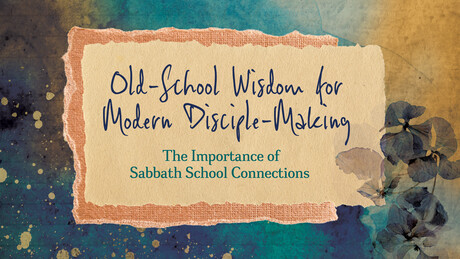Psychologists frequently use the words “toxic stress” to describe what prolonged adversity does to our brain, especially the developing brains of children.
Without adult support, toxic stress can significantly and negatively impact a child. Knowing this, I can’t help but wonder if stress in our homes in the middle of a pandemic. For some children, homes can be environments with fear, confusion and conflict.
I question what our children are hearing. We should be asking ourselves:
- "Do I show unhealthy fear?"
- "How judgmental are my words?"
- "Are our youngest ones confused because I'm having arguments with or talking about family members negatively?"
- "How is this impacting our teens as they try to understand and navigate what is valid, truthful and scientific?”
All these questions give me pause. Children respond to things around them based on how their care provider is responding. This behavior is called “co-regulation.” If children are looking to us, an important question to ask is, “How am I regulating my emotions?”
So how can we manage a child's response to traumatic stress? My suggestion is to make time to talk with the children in your life. Ask them what their friends are talking about. Create an environment that feels safe to talk about all of it, whatever that might be, even masks and vaccines. Ask them if they have any questions about what they have heard you talk about.
Tune into their feelings and talk about how you are feeling and ways you are trying to cope. Remember, throughout the discussion time, children develop their self-regulation from the co-regulation you model and provide. Acknowledge the responses, thoughts and reactions kids have, and don’t be surprised if they think differently than you. Obviously, make sure that all conversations are appropriate for the child’s developmental level.
Discuss practical ways to choose to be like Jesus in hard and confusing times. For example, we may also need to venture into the topic of other Christians, who love Jesus and pray every day, but who might view and respond to the world differently than our family. Remind them that, even if there are differences of opinion, there are people around them who genuinely care and want to help them and even you.
Use a calm and reassuring voice and tone. It is okay not to have all the answers, but assuring them that you are in this together and that you will do your best to protect them is key.
Although there is stress all around us — and we do indeed live in stressful times — our homes need to be the sanctuaries God intended them to be. Ask the Holy Spirit to make you aware of the times a conversation should happen, and remember that eye contact and safe physical touch are vital connections during hard times.
Ingrid Slikkers is assistant professor of Social Work and director of the International Center for Trauma Education and Care at Andrews University’s School of Social Work. This article was originally published by the Lake Union Herald. It has been edited by Gleaner for clarity.











